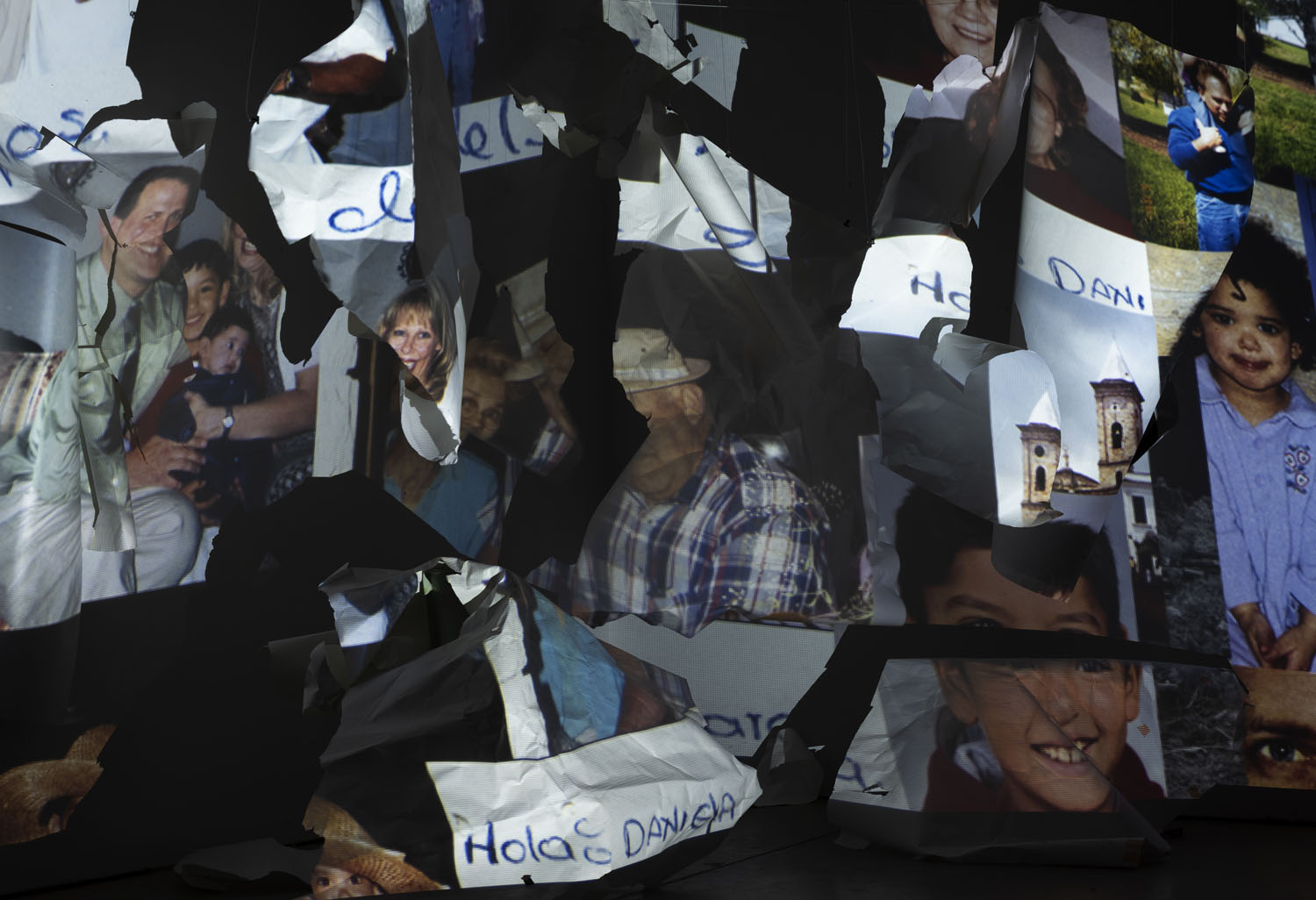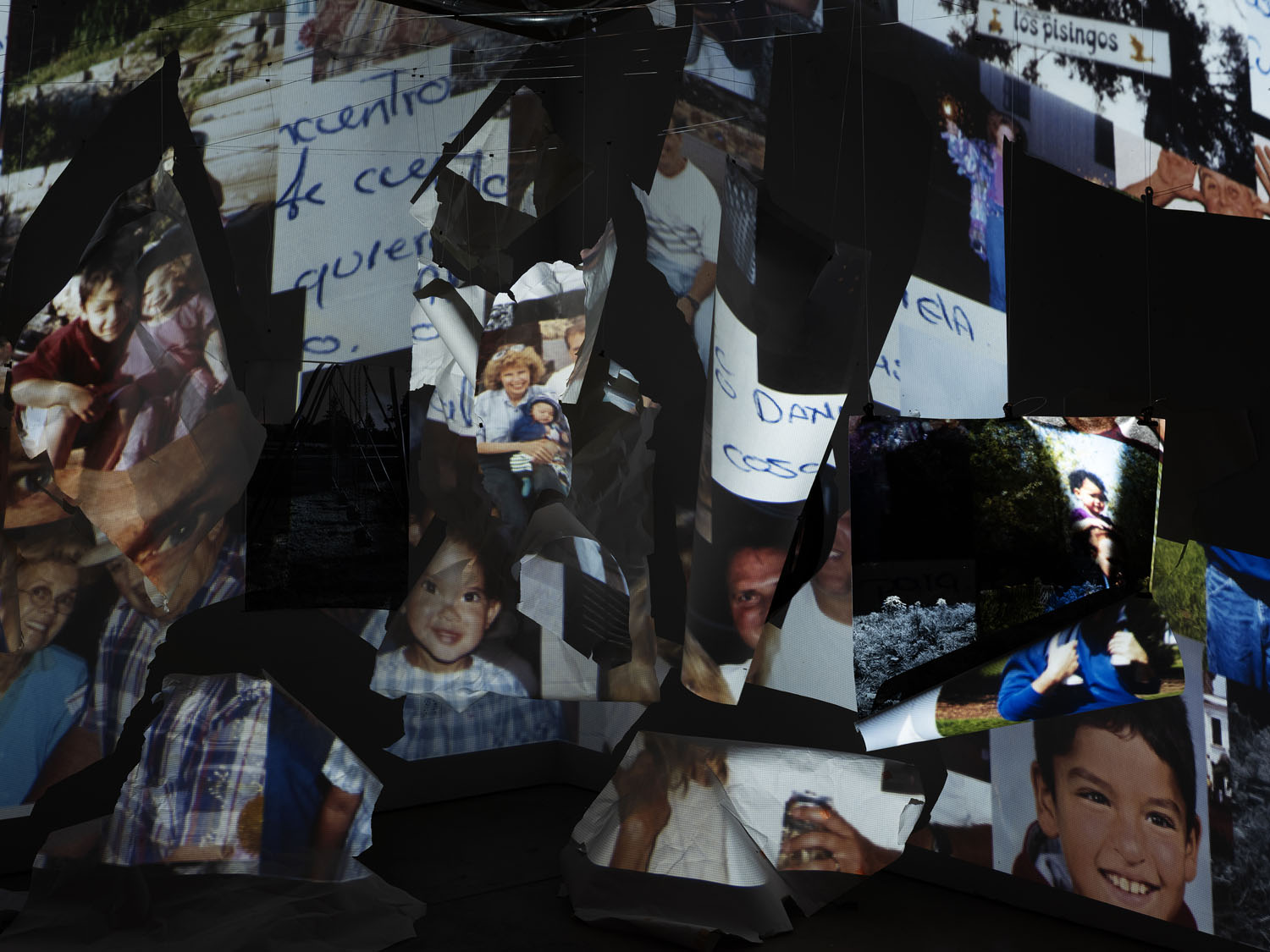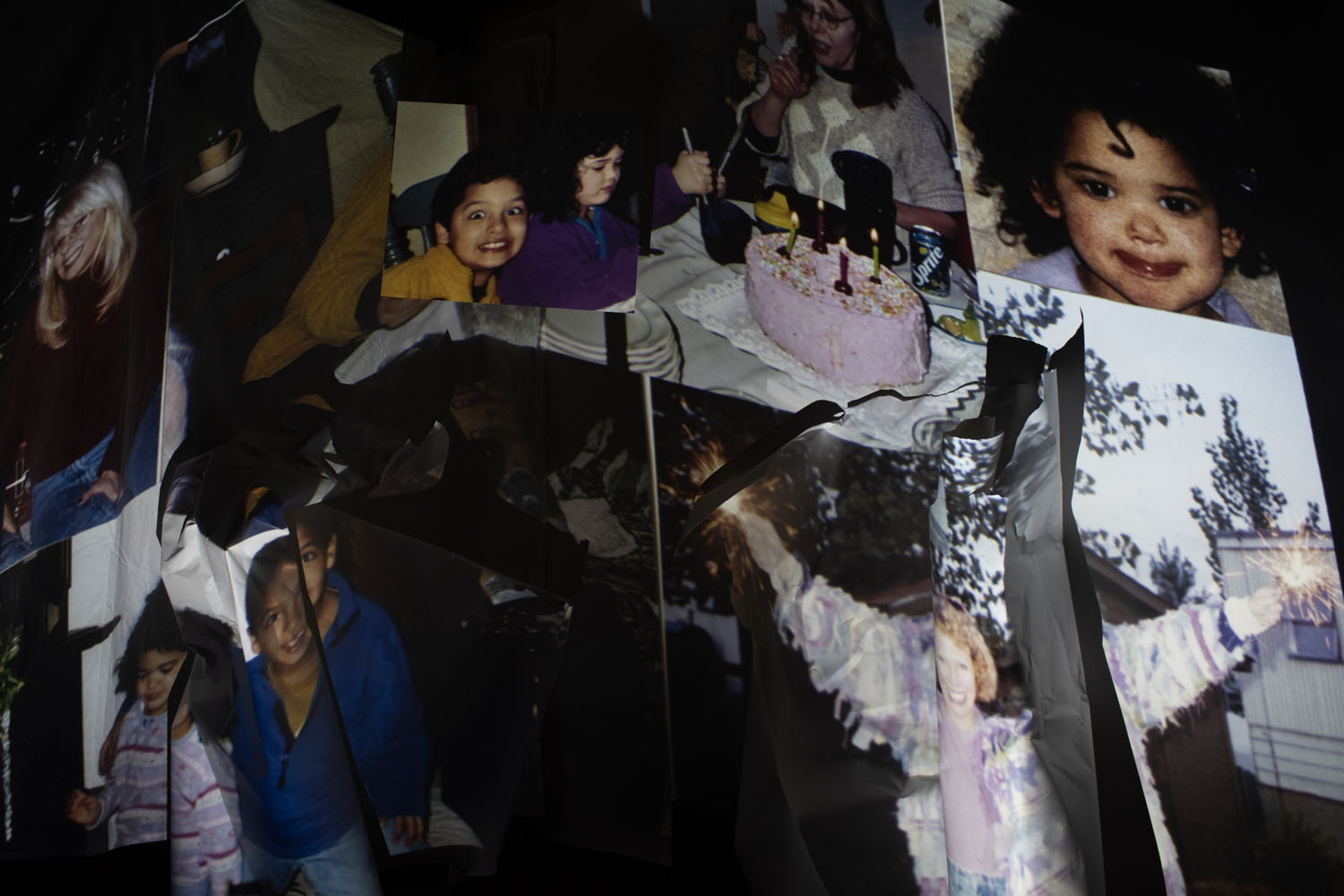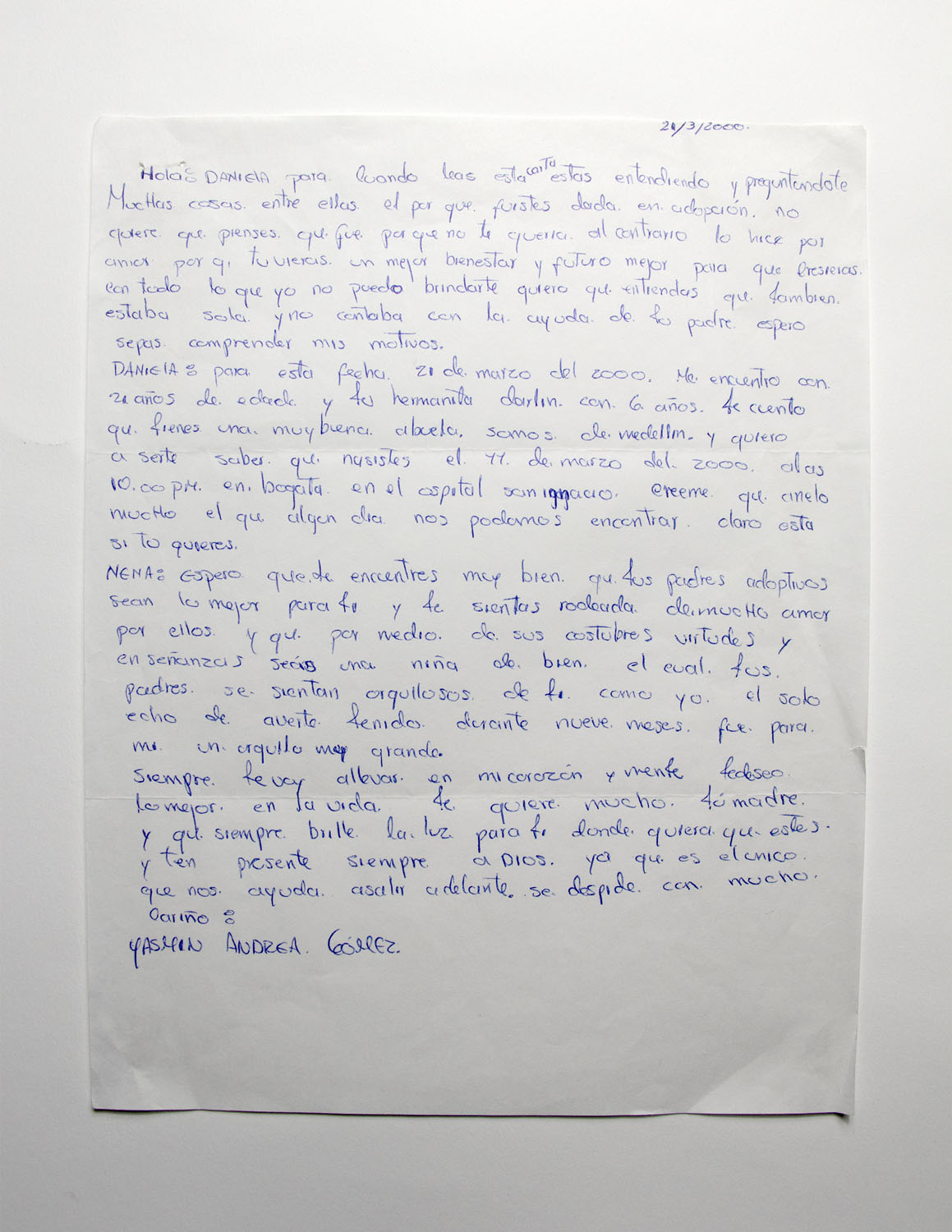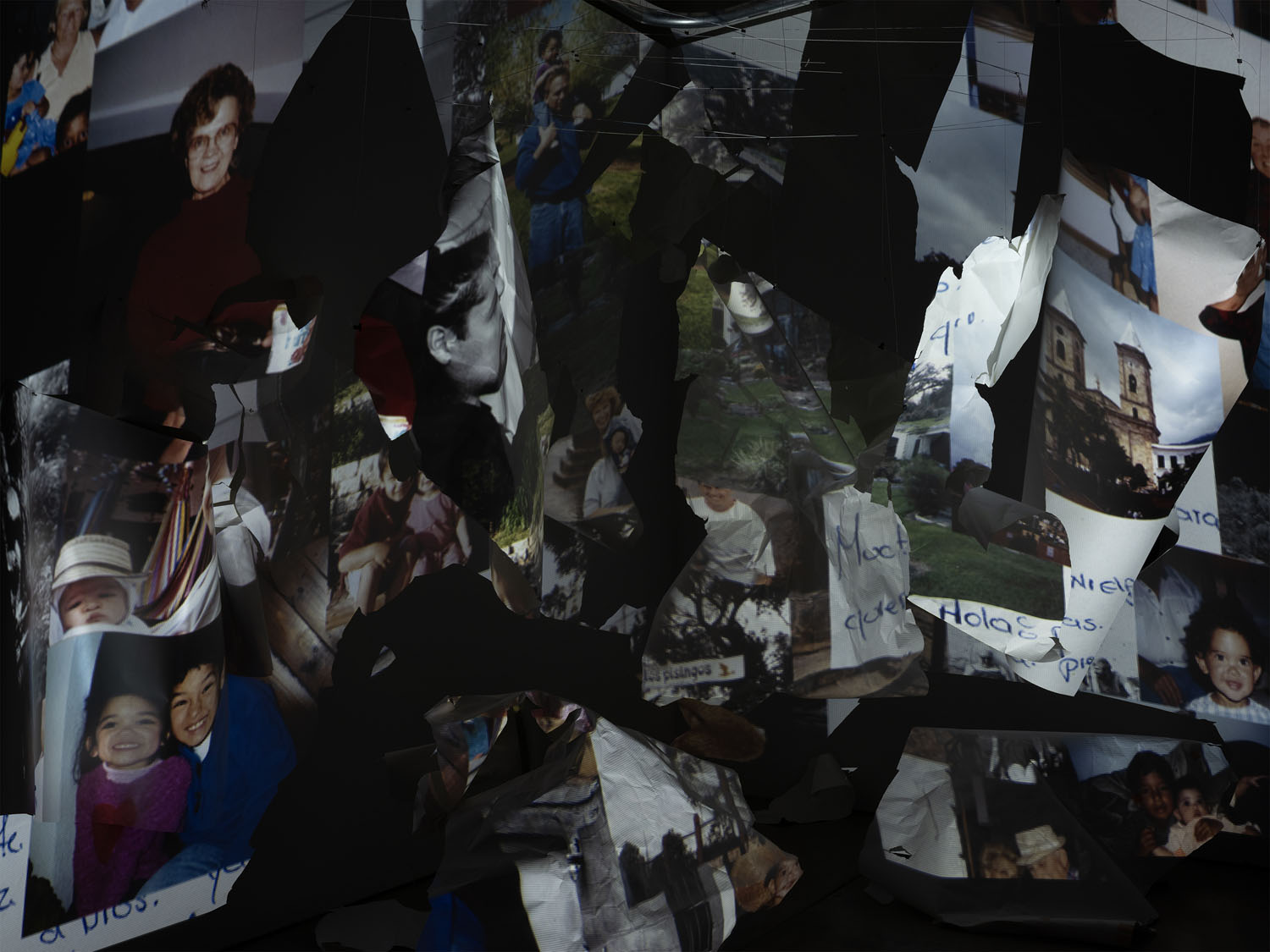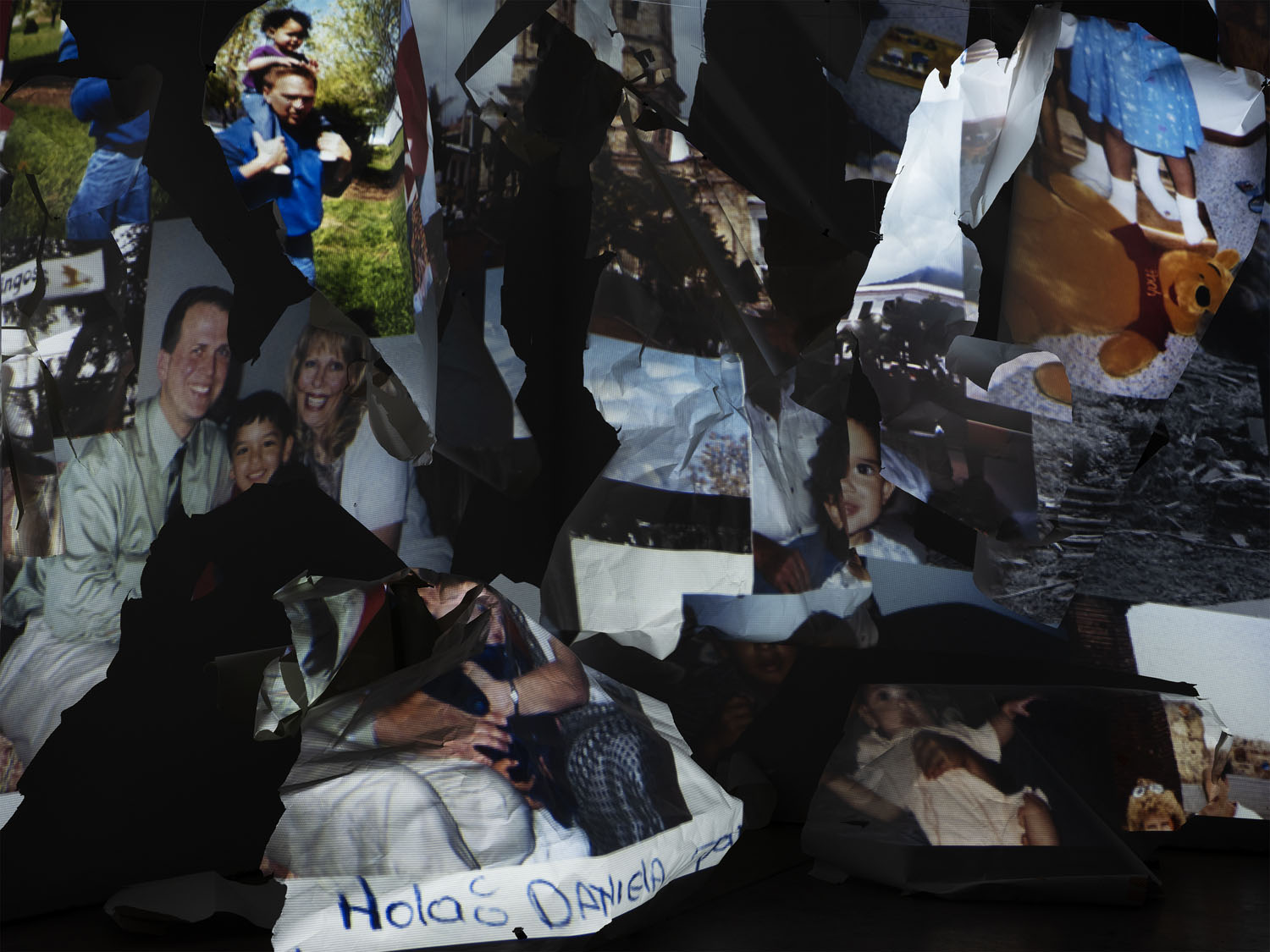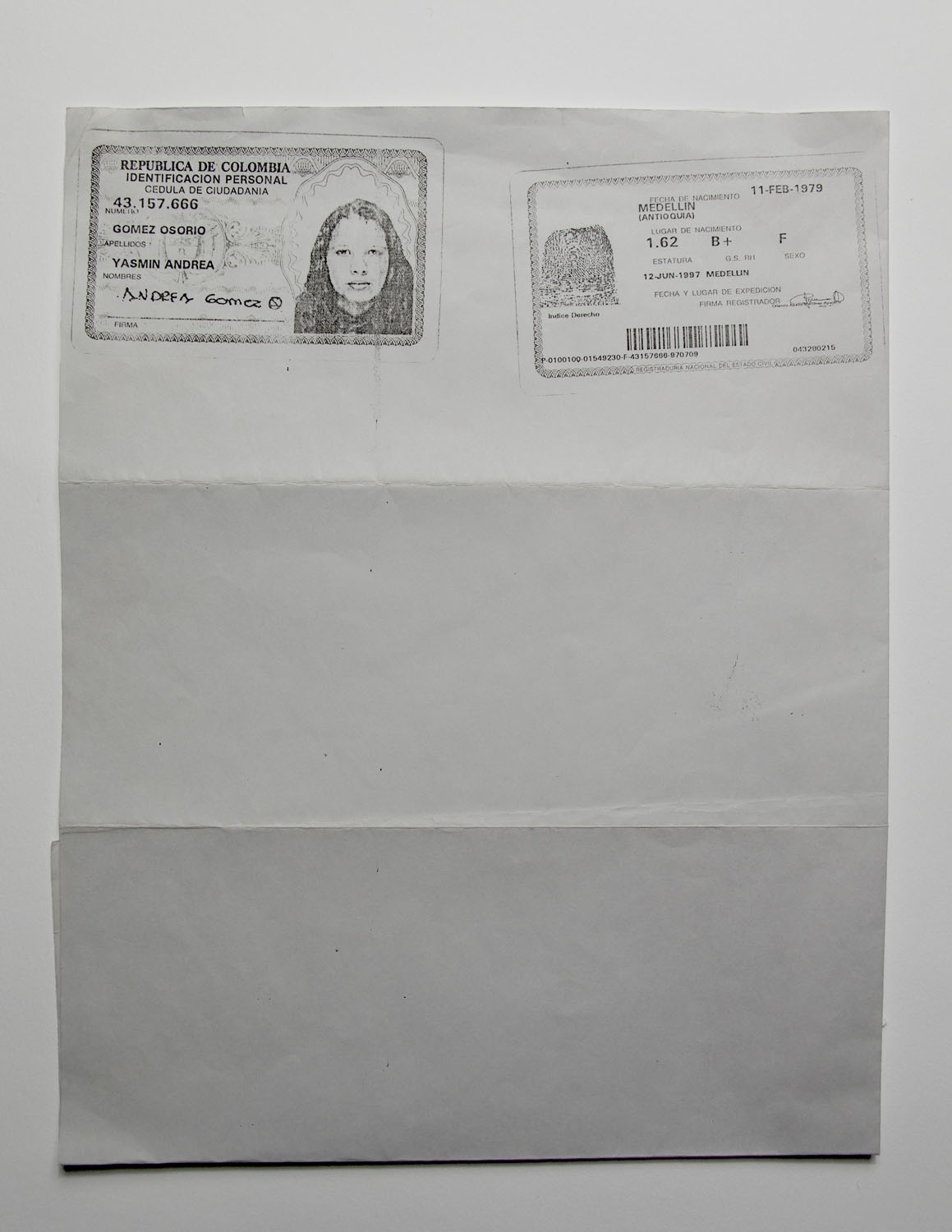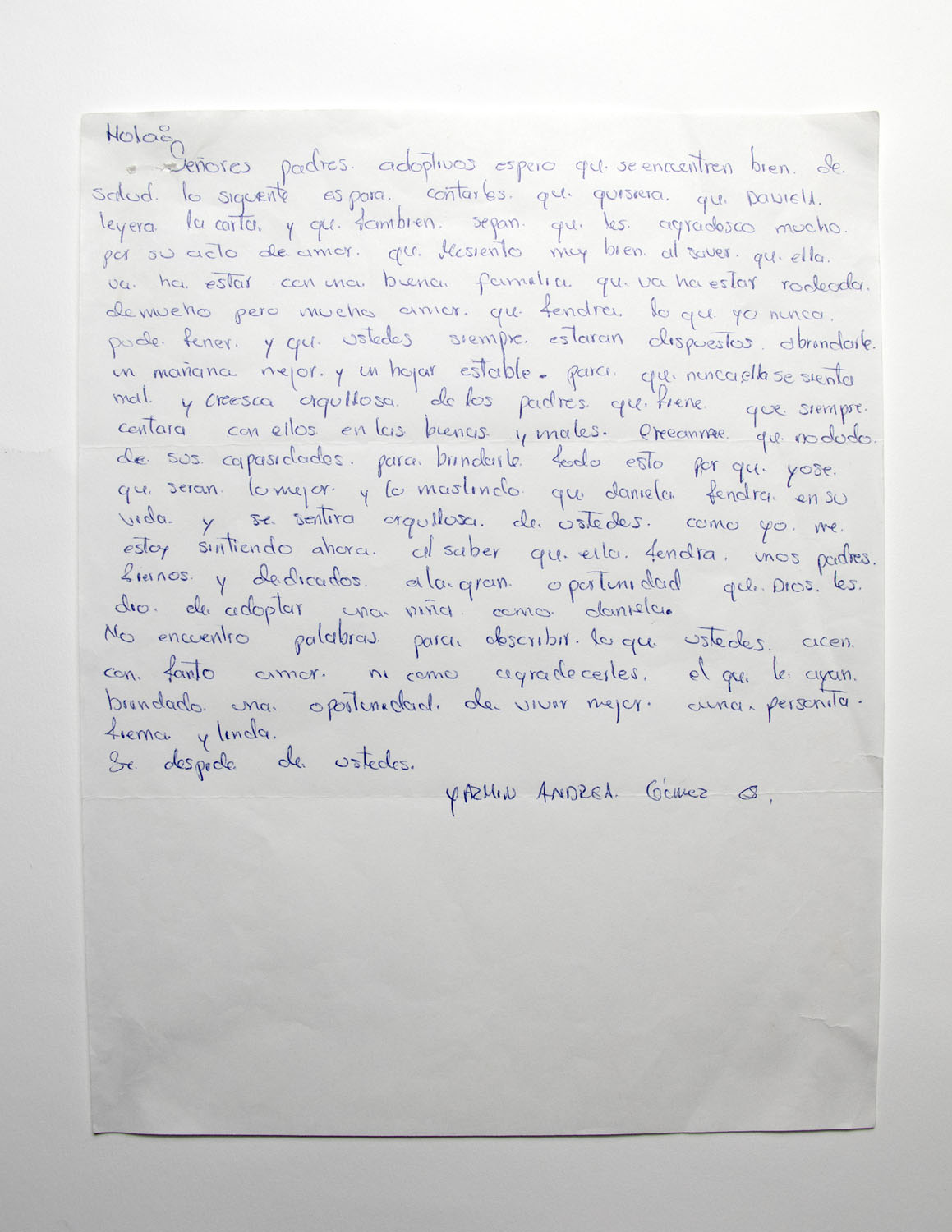Gracie Rothering is a Latinx, Indigenous, and Black artist currently living in Oregon with her beloved dog, Oscar. Rotherings’s practice focuses on race, identity, visibility, and adopted life through photography. Rothering was born in Bogota, Colombia, in 2000 and was adopted that same year. She was raised in a small town called Cochrane in Wisconsin. Rothering is the recipient of the Harold Spitznagel Medal for Achievement in Art that she received at Augustana University in 2022. She is an MFA candidate at the University of Oregon.
As a transracial adoptee, my work explores the intersections of memory, identity, and race through photography. My practice is deeply rooted in my lived experience, growing up in a white family while navigating the complexities of my Colombian heritage. Through a combination of analog and digital techniques, I construct images that reflect the fragmentation and dissonance inherent in adoptive life.
Some of my most cherished memories took place at my grandparents’ house. They were warm, loving people. My grandmother was my best friend, and the moments I shared with her and my grandfather remain deeply special. It wasn’t until I began exploring themes of race and identity that I learned my grandparents initially resisted my parents’ decision to adopt children of color. They worried about societal judgments and, fueled by their biases, urged my parents to consider other options. However, their perspective shifted when they met my brother, and they embraced us unconditionally. This revelation was shocking and illuminating, reinforcing how social and historical perceptions of race influence personal relationships.
These moments of belonging and alienation have shaped my work which examines howidentity is formed through fragmented memories and cultural disconnection. I am interested in how people are seen—or unseen—by others. One recurring phrase I have encountered is, "I don’t see color." While often intended as a statement of love and acceptance, this notion can feel dismissive of the lived realities tied to race. It raises questions about visibility and belonging that remain central to my practice.
Photography became my chosen medium because of its ability to preserve what is visible yet inaccessible. I work with in-camera collage, projection, and layered textures to create depth and abstraction, mirroring the complexity of identity and adopted life. Inspired by artists like LaToya Ruby Frazier, Joel Sternfeld, and Aaron Turner, I document personal and historical narratives that reflect individual and collective experiences. By projecting images into physical spaces, I disrupt the boundaries of traditional photography, emphasizing the layered and elusive nature of memory. I transform three-dimensional spaces into two-dimensional images by capturing these projections as photographs. This 2D perspective acts as both a window and a wall: a window into my emotional connection with the materials and a wall that prevents deeper access to the memories themselves. The flattened perspective underscores how I am forced to engage with specific memories—not as lived experiences, but as fragmented remnants viewed from a distance.
A significant element of this exploration is a letter from my birth mother—a rare and precious artifact in the adoption experience. In this letter, she explained the difficult decision to give me up, expressing love and hope that I would have a life free from poverty and uncertainty. While this letter provided clarity, it did not resolve the lingering questions about my identity or the cultural dissonance I continue to navigate. I incorporate this letter into my work, layering its words within my photographic compositions to symbolize the duality of knowing and unknowing, presence and absence. I also present the original documents I received at birth, allowing viewers to engage with the tangible information I grapple with.
Ultimately, my work is an ongoing dialogue between past and present, personal history and broader societal narratives. Through photography, I seek to create a space for reflection—for myself and others who grapple with fragmentation, belonging, and self-discovery.
